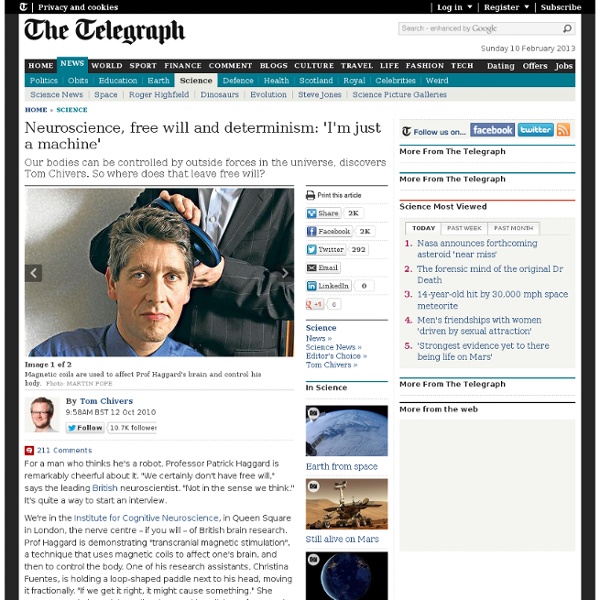Neuroscience, free will and determinism: 'I'm just a machine'

Neuroscience of free will
On several different levels, from neurotransmitters through neuron firing rates to overall activity, the brain seems to "ramp up" before movements. This image depicts the readiness potential (RP), a ramping-up activity measured using EEG. The onset of the RP begins before the onset of a conscious intention or urge to act. Some have argued that this indicates the brain unconsciously commits to a decision before consciousness awareness. Others have argued that this activity is due to random fluctuations in brain activity, which drive arbitrary, purposeless movements.[1] Philosophers like Daniel Dennett or Alfred Mele consider the language used by researchers. Overview[edit] ...the current work is in broad agreement with a general trend in neuroscience of volition: although we may experience that our conscious decisions and thoughts cause our actions, these experiences are in fact based on readouts of brain activity in a network of brain areas that control voluntary action... William R.
Learning how the brain does its coding
Most organisms with brains can store and process a staggering range of information. The fundamental unit of the brain, a single neuron, however, can only communicate in the simplest of manners, by sending a simple electrical pulse. The challenge of understanding how information is contained in the pattern of these pulses has been bothering neurobiologists for decades, and has been given its own name: neural coding. In principle, there are two ways coding could be handled. The alternative, sparse coding, tends to be used for memory recall and sensory representations. A study released in yesterday's Science provides some perspective on just how flexible this sort of system can be. The authors of the paper traced the connections among the neurons in the mushroom body, and found that most were contacted by a single, giant interneuron that sent them inhibitory signals.
Related:
Related:



